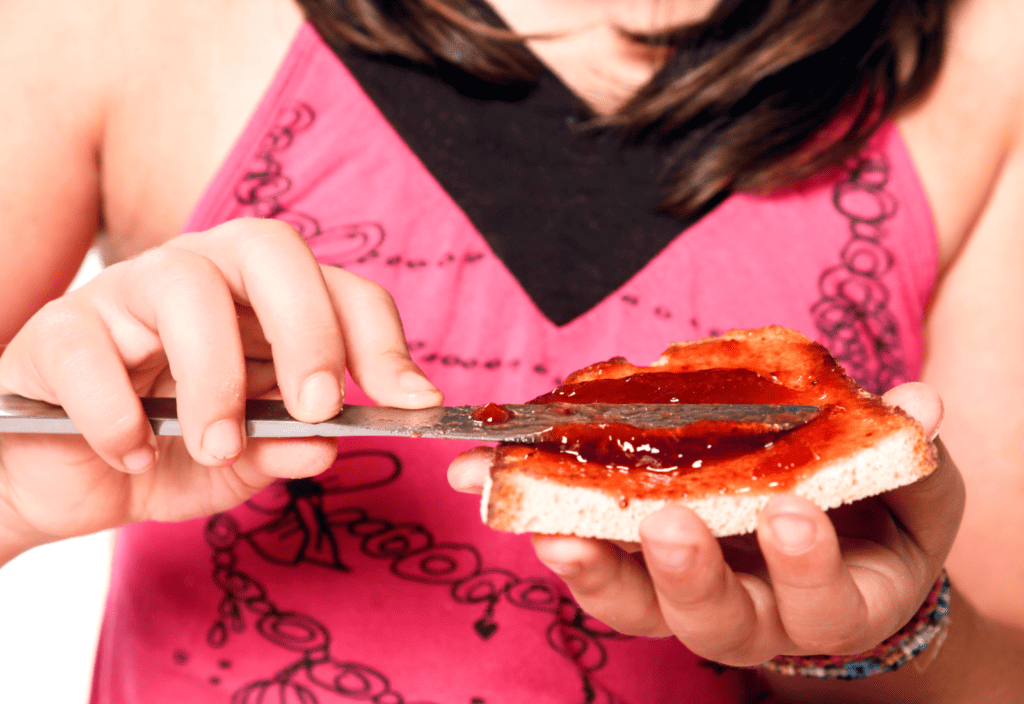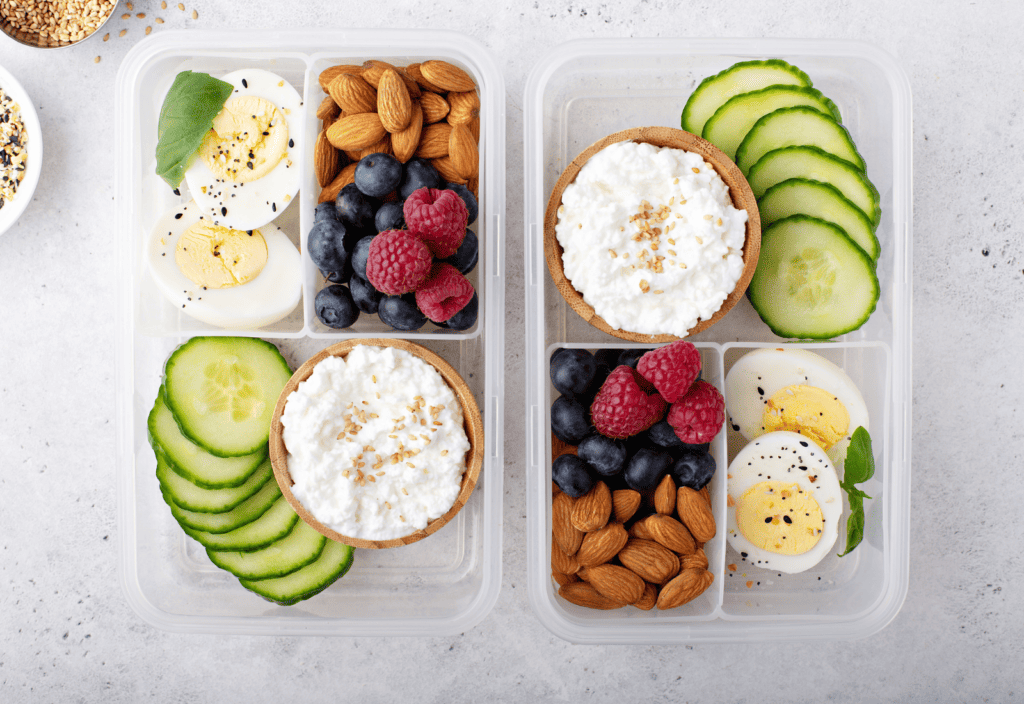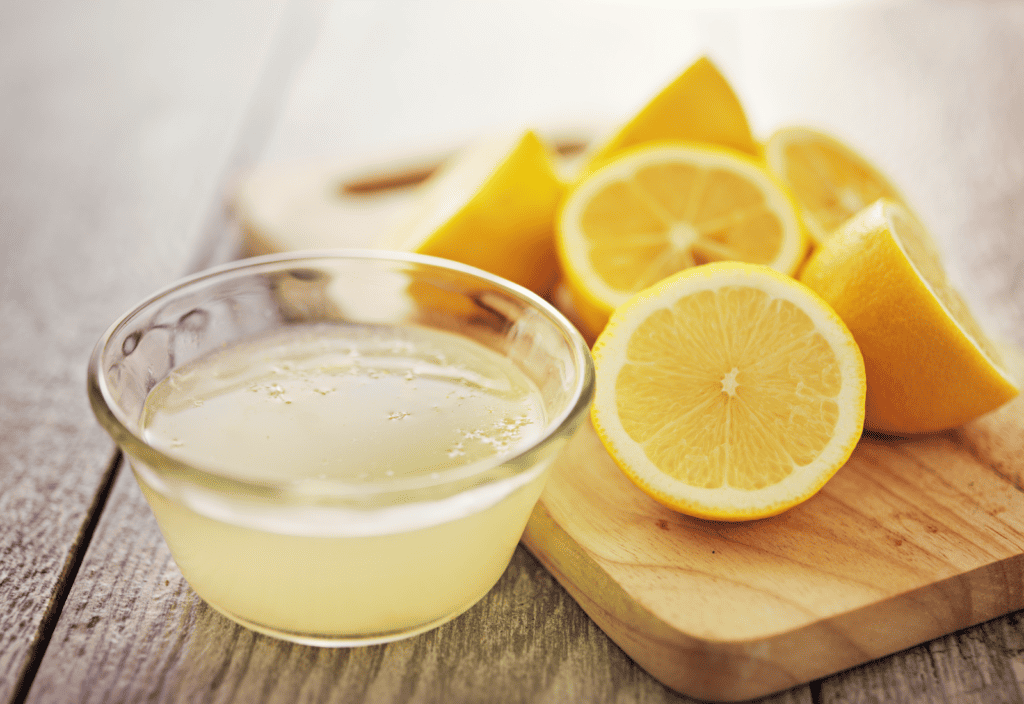You may have heard the term “naked carb” thrown around in conversations about fasting and stabilizing blood sugar. In this post, we’ll discuss what naked carbs are why you want to stop eating them.

What is a Naked Carb?
A naked carb is a term used to describe a carb eaten by itself. It’s a carbohydrate without accompanying protein or fat. Eating a slice of white bread by itself would be an example of a naked carb.
If you add some nut butter or avocado to the bread, it would no longer be a naked carb. Pretty simple, right?
What’s So Bad About Naked Carbs?
Naked carbs usually come into conversation when people are discussing eating in a way that stabilizes blood sugar or eating a low glycemic diet. Naked carbs are known to substantially spike blood sugar, so they can wreak havoc on healthy eating efforts.
Protein acts as a buffer and minimizes the blood sugar spike that occurs when you eat simple carbs alone. If you are trying to lose weight or avoid the crash feeling that often comes with eating a high carb meal or snack, it’s a good idea to avoid naked carbs.
What are the Benefits of Balanced Blood Sugar
You may be wondering what’s so magical about maintaining steady blood sugar and avoiding drastic spikes. Having stable blood sugar offers a plethora of benefits. One of my personal favorites is long-lasting energy.
When I became consistent in this area, I stopped having the desire to nap, which definitely makes life more manageable. Some other benefits are weight loss or maintenance, mental clarity and brain health.
Stable blood sugar can actually fight against Alzheimer’s Disease as individuals with diabetes are more likely to develop dementia. Alzheimer’s Disease has recently been nicknamed Type 3 Diabetes due to this connection.
If you are already diabetic or prediabetic, it is, of course, absolutely essential to maintain balanced blood sugar to avoid health complications like heart disease, vision loss and kidney disease.
Time restricted eating is an awesome tool to stabilize blood sugar. For more on that topic, see my related post, What is the Optimal Restricted Eating Schedule?
How to Avoid Eating Naked Carbs
Always Eat Carbs with Protein
There are lots and lots of ways to avoid eating naked carbs. You can simply avoid eating carbs alone. When the waitress brings out the bread and you want to indulge), set it aside and eat it after your meal. It may seem one in the same but eating carbs at the end of a meal will curb glucose spikes.

If you’re like me and you love, love, love chocolate cake but would prefer not to eat it with bites of steak, you may be wondering if there is a work around?
Yes! Eat the cake after a high protein meal rather than on its own. Eating cake right after a high protein meal is very similar to eating cake and protein at the same time. What a relief, right?
This means forgo eating cake or ice cream in the middle of the afternoon, before a meal or late at night (which invites a whole other host of issues). Naked carbs at night are more problematic for blood sugar than naked carbs during the day.
Utilize Vinegar and Fermented Foods
You’ve probably heard that Apple Cider Vinegar is good for blood sugar. You can even buy apple cider vinegar tablets and drinks for weight loss. One of the reasons why it may aid in weight loss or appetite control is that it contains acetic acid, which is shown to lower glucose and insulin responses.
The study looked at different doses and found the more vinegar the more positive the response. The same study showed that vinegar also increases satiety, so it’s a double win for adding vinegar to meals.
A Japanese study compared eating plain white rice to sushi rice, which contains vinegar, and found that the glycemic index was actually cut in half.
Fermented foods contain lactic acid, which works in a similar way to blunt the effect of the carbs. Some examples are pickled vegetables, kefir, yogurt, cheese, miso, kimchi, cheese and sauerkraut.
Lemon Juice
Lemon juice contains citric acid, which inhibits enzymes that break down starch during digestion which slows down the release and uptake of starch-derived glucose. A 2021 study shows that lemon juice significantly lowers the mean blood glucose concentration peak by 30% and delayed it more than 35 min.
Some ways to incorporate lemon juice into your meals is to put it on top of vegetables, salads and even fish. You can always just enjoy a glass of lemon water before or after your meal as well.

What are Some Naked Carb Swaps?
Instead of bread with jam, try bread with nut butter. Swap rice and veggies to rice with veggies and meat or beans. Incorporate almond flour into your baking recipes. If you normally eat a high carb breakfast, eat eggs first. If you like to snack on fruit, have a boiled egg with it.
Not only does adding protein protect you from blood sugar spikes, but it also keeps you full longer.
Learn More About Stabilizing Blood Sugar
One of my favorite resources for stabilizing blood sugar is Dr. Jason Fung, who is the author of “The Complete Guide to Fasting,” “The Obesity Code” and “The Diabetes Code.”
Another fantastic resource is Cynthia Thurlow, who is a nurse practitioner and author of “Intermittent Fasting Transformation: The 45-Day Program for Women to Lose Stubborn Weight, Improve Hormonal Health, and Slow Aging.” She is also the creator and host of a podcast, Everyday Wellness Project.
Conclusion
I hope this post adequately explained how to stop eating naked carbs. I don’t know about you, but I am completely intrigued by the many benefits of preventing and minimizing blood sugar spikes. As always, thanks for stopping by and trusting me to share information with you.